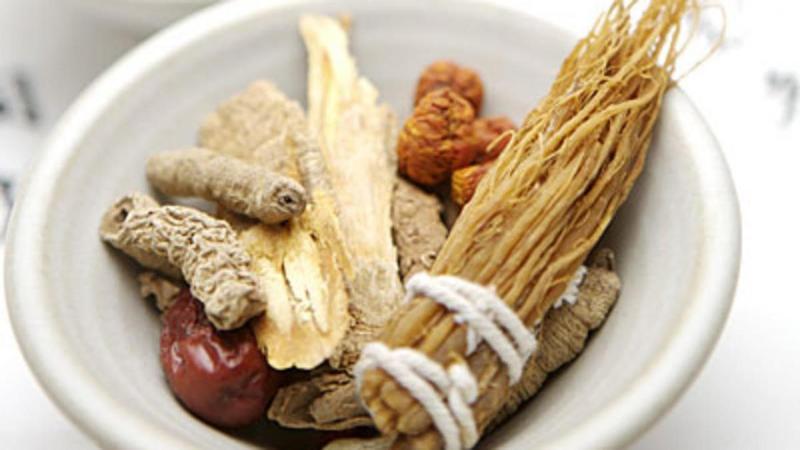Researchers Recommend Replacing Aspirin with this Natural Alternative
Researchers Recommend Replacing Aspirin with this Natural Alternative
As far back as the 5th century BC, the Greek physician Hippocrates wrote about the use of a bitter powder extracted from willow bark that reduced fevers and eased aches and pains. Native Americans also used an infusion of willow bark for similar purposes. What was this remarkable “healing” principle within the bark that relieved disease?
Known as salicylic acid (from the Latin salix, willow tree), this pain-killing compound is widely distributed throughout plants, where it functions as a hormone. The more vegetables and fruits you consume, the more likely you are to have a physiologically significant concentration of salicylic acid in your blood. This is why, for instance, vegans and vegetarians generally have higher levels than most grain- and meat-based consumers.
The chemical acetyl-salicylic acid, commonly known as aspirin, is a synthetic form of salicylic acid, a compound which is formed when salicin, a bitter compound naturally found within plants like white willow bark, is broken down within the human body. Salicylic acid can also be synthesized endogenously from benzoic acid, and its urinary metabolite, salicyluric acid, has been found to overlap levels in patients on low-dose aspirin regimens. Cell research indicates that salicylic acid compounds (known as salicyclates) actually compare surprisingly well to aspirin in reducing inflammatory activity.
While salicylic acid is found naturally in plants as salicylates, acetyl-salicylic acid does not exist in nature, is not formed as byproduct of natural salicylate consumption, and is produced only through industrial synthesis. For example, this is one method of synthesis:
Acetylsalicylic acid is prepared by reacting acetic anhydride with salicylic acid at a temperature of <90 deg C either in a solvent (e.g., acetic acid or aromatic, acyclic, or chlorinated hydrocarbons) or by the addition of catalysts such as acids or tertiary amines.
Also, the chemical modification of natural salicylic acid with an acetyl group results in the acetylation of hemoglobin, essentially chemically altering the natural structure-function of our red blood cells and subsequent hemodynamics. In essence, aspirin, a semi-synthetic compound, makes the blood tissue itself semi-synthetic.
This could be why aspirin has been linked to such a broad range of unintended adverse health effects, including but not limited to:
Gastric Ulcer
Hearing Loss/Tinnitus
Cerebral Bleeding
Influenza Mortality
Reye Syndrome
Crohn’s Disease
Helicobacter Pylori Infection
According to US EPA statistics, up to 500 thousand pounds of the chemical was produced in the United States in 1998 alone. Millions the world over take it for pain relief, including your typical headache, but also for the prevention of heart attacks and stroke.
Taking a “ baby aspirin”, i.e. an 81 mg dose, is considered safer — which is relative to a 325 mg “adult dose” – but is known to cause widespread and significant gastroduodenal damage. A study published in 2009 in the journal Currrent Medical Research & Opinion titled, “Gastroduodenal toxicity of low-dose acetylsalicylic acid: a comparison with non-steroidal anti-inflammatory drugs”, found the following:
Data suggest that ASA causes significant gastroduodenal damage even at the low doses used for cardiovascular protection. These effects (both systemic and possibly local) may be pharmacodynamically distinct from the gastroduodenal toxicity seen with NSAIDs.
Another 2009 study found that 80% of healthy individuals who uses short-term (14 days), low-dose aspirin experienced small intestinal toxicity, including small bowel mucosal breaks and mucosal inflammation.
Hemorrhagic side effects, in fact, are one of the greatest challenges facing those who use aspirin for prevention. By taking a drug which prevents clotting, aspirin can work too well, resulting in bleeding disorders or events, some of which may be life-threatening, even lethal.
So, given the serious, unintended adverse health effects of aspirin therapy, what are some evidence-based natural alternatives?
Recommended for you


Researched aspirin alternatives include
Pycnogenol: A human study published in 1999 in the journal Thrombotic Research found that pycnogenol was superior (i.e. effective at a lower dosage) to aspirin at inhibiting smoking-induced clotting, without the significant (and potentially life-threatening) increase in bleeding time associated with aspirin use. The abstract is well worth reading in its entirety:
The effects of a bioflavonoid mixture, Pycnogenol, were assessed on platelet function in humans. Cigarette smoking increased heart rate and blood pressure. These increases were not influenced by oral consumption of Pycnogenol or Aspirin just before smoking. However, increased platelet reactivity yielding aggregation 2 hours after smoking was prevented by 500 mg Aspirin or 100 mg Pycnogenol in 22 German heavy smokers.
In a group of 16 American smokers, blood pressure increased after smoking. It was unchanged after intake of 500 mg Aspirin or 125 mg Pycnogenol. In another group of 19 American smokers, increased platelet aggregation was more significantly reduced by 200 than either 150 mg or 100 mg Pycnogenol supplementation. This study showed that a single, high dose, 200 mg Pycnogenol, remained effective for over 6 days against smoking-induced platelet aggregation. Smoking increased platelet aggregation that was prevented after administration of 500 mg Aspirin and 125 mg Pycnogenol.
Thus, smoking-induced enhanced platelet aggregation was inhibited by 500 mg Aspirin as well as by a lower range of 100-125 mg Pycnogenol. Aspirin significantly (p<0.001) increased bleeding time from 167 to 236 seconds while Pycnogenol did not.
These observations suggest an advantageous risk-benefit ratio for Pycnogenol.
Pycnogenol also has about as many “side benefits” as aspirin has side effects.
Policosanol: Already well-known for its ability to modulate blood cholesterol levels as effectively as statins, but without their notorious side effects, this sugar cane wax extract has been found to be as effective as aspirin at inhibiting clotting, but at a lower, safer dose.
There are actually a broad range of natural compounds, including foods and spices, with demonstrable platelet-inhibiting activity.
Ultimately, however, cardiovascular disease and heart attacks, for instance, are not caused by a lack of aspirin.
Be the first to post a message!
